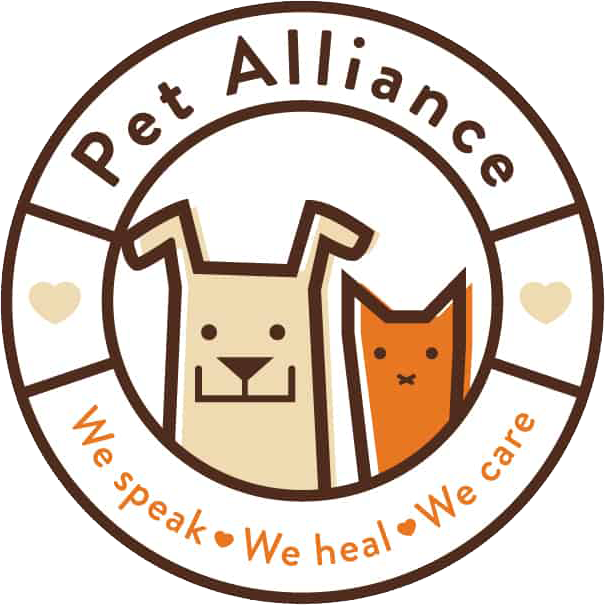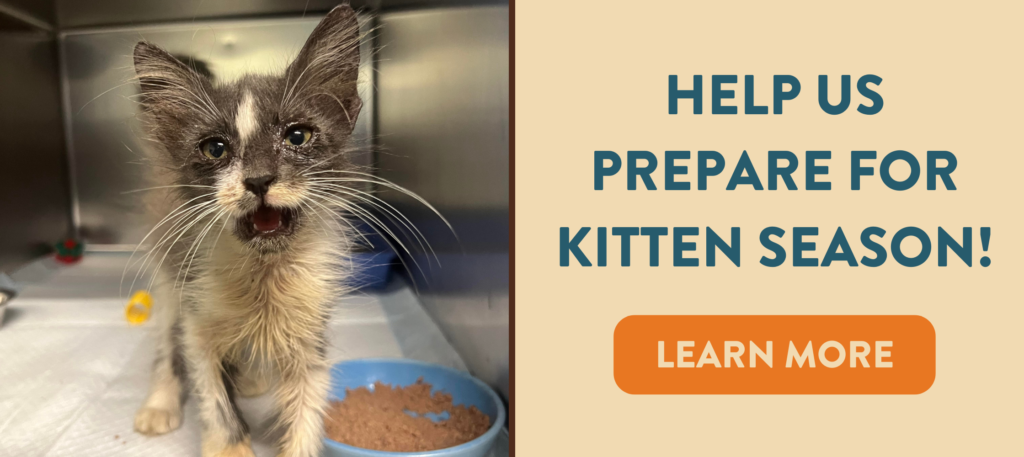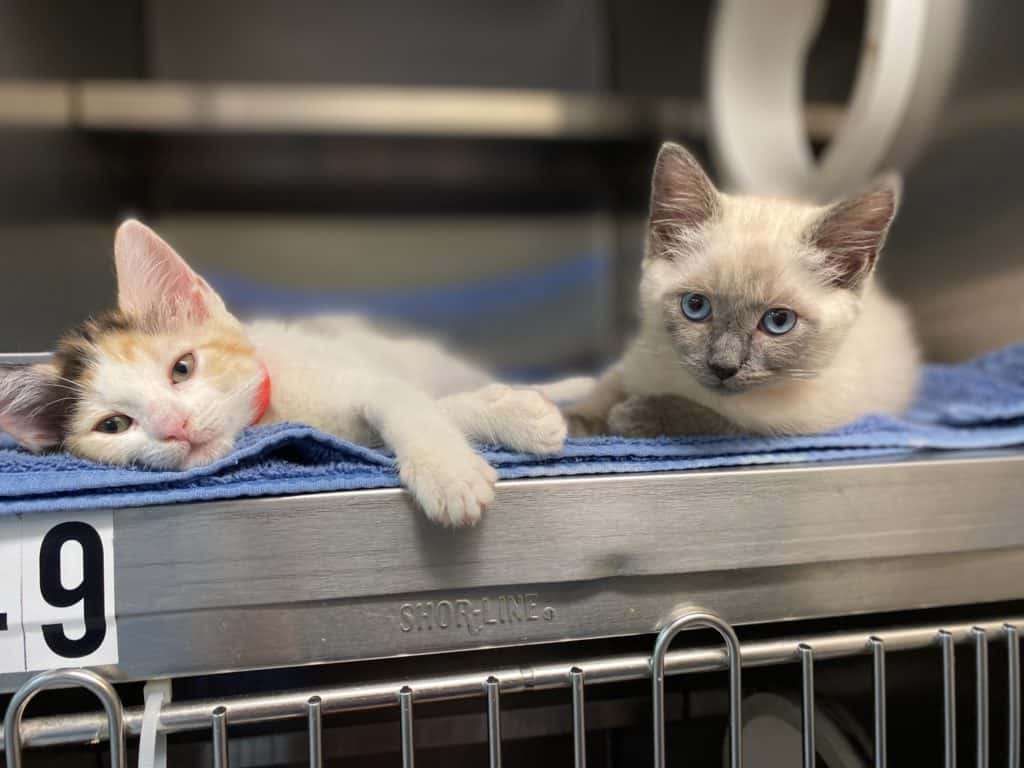
The 2020 Kitten Season is upon us here in Central Florida, meaning thousands of kittens will end up in shelters across the state (as well as nation wide) as unaltered cats being having litters of kittens. Just last year, over 1,300 kittens were brought to Pet Alliance alone.
This “season” lasts for most of the summer, but Southern states like Florida, where it’s hot year round, have a steady flow of kittens throughout the year. Summer just so happens to be when we see kittens rushed to the shelter daily, which can put a strain on resources as kittens are some of the most vulnerable animals at the shelter.
Did you find a kitten? Did you look for mom first?
Litters of kittens require around the clock care as many are turned into the shelter without a mom. Without mom, kittens are less likely to survive as they depend on her for all aspects of their well-being. When humans intervene by picking up a kitten and they didn’t wait to see if mom was around, they haven’t taken every step to help protect that life. It turns out that seemingly “orphaned” kittens are usually within watching distance of mom, but she’s likely spooked by people poking at her kittens. So she won’t approach.
You can learn more about what that looks like in our Do’s & Don’ts of Finding a Newborn Kitten blog post, but our main ask is you: 1. leave them be. 2. Wait for mom.
Foster Parents Help Save Lives
Even when every effort is made to find mom, some kittens truly have been orphaned, so we understand why many folks lean on shelters for guidance.
But the truth is that most shelters don’t have the time or staffing to reasonably take on the dozens of kittens that come into the shelter daily throughout kitten season. Taking care of kittens means individualized care that should be done in a home environment, as they could be exposed to a number of illness their tiny immune systems aren’t ready to fight like upper respiratory infections (URI) while at the shelter.
Taking care of kittens involves:
- Bottle feedings 2-6 hours a part depending on their age.
- Keeping them warm 24/7 with heating pads and rice socks as they can’t regulate their temperature until they’re 4 weeks old.
- Stimulating them to go to the bathroom as they can’t on their own.
- Maintaining detailed notes about their weight gains, and pee/poops (how much, what color, etc.)
- Taking them to veterinary appointments for shots, needed medications, or if you think something needs to be addressed by a medical professional.
- Keeping your supplies stocked which includes bottles with various nipples (aka every kitten is different and likes to eat THEIR way), milk replacer, baby wipes (trust us you need them), tissues, heating pads/rice socks, training litter boxes, litter made for kittens, toys, cans and can of solid food for when they are weaning, and more!
Sometimes even after all of the efforts made above, we still just can’t replace what mom provides to a young life. So many day-old or several week old kittens don’t make. So please, do you best to locate mom.
We rely heavily on fosters to take care of these kittens into their homes and raise for them instead. Most fosters actually end up being the same people who have found the kittens originally depending on their age as day-old newborns (or neonatal kittens) often need an experienced hands as they are already at a disadvantage.
But once a kitten or litter placed in foster care and a routine is established then it’s usually smooth sailing!
Wait Till 8
Kittens are typically in foster care until they are at least 8 weeks old and 2lbs so they can receive their spay/neuter surgeries to help end the cycle of kitten over population. During these 8 weeks, foster parents will need to measure weight gain and body development in order to see if the kitten is meeting all their weekly milestones.
Some kittens have issues with constipation, eye infections, URIs, random bouts of fussy eating, and more! So it’s not always easy, but at Pet Alliance our foster care Coordinators are able to assist with years of advice and are in contact with our shelter veterinarian to set up appointments.
Fostering through Pet Alliance
If you have a kitten you would like to foster through Pet Alliance call (407) 351-7722. Must be local to Central Florida, willing to care for the kitten(s) in their home till they are 8 weeks old and 2lbs. All adoptions will take place through Pet Alliance, but will also include their medical and spay/neuter surgeries.
What to have in your Kitten Kit
Just a few examples from our wishlist that we use for kittens and puppies in our care. Make sure kittens are placed in a well ventilated area with high sides so they can’t escape. Clear storage bins with no lid can do the trick!
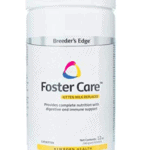
Breeders’ Edge – Puppy/KittenMilk Replacer – During the summer months, thousands of kittens and puppies will turn to our foster parents for care. Milk replacer is invaluable in helping these kittens/puppies make it adoption age — 8 weeks and 2 pounds.

Kitten Pate Wet Cat Food (Healthy Gourmet) – Kitten’s who are weaning will receive Pate style wet food. One litter (depending on their age) can eat up to two cans a day!
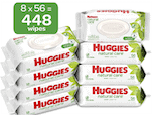
Natural Care Unscented Baby Wipes – Unscented, natural baby wipes are helpful for fosters to clean up any puppies or kittens as they need to be stimulated to defecate.
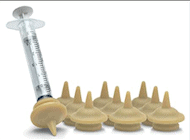
The Miracle Nip – During the summer months, thousands of kittens and puppies will turn to our foster parents for care. Miracle Nipples are the best for bottle babies are kittens tend to like the smaller size AND these nipples can be added to many different types of bottles. You typically only need one nipple per litter.
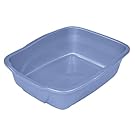
Litter Boxes (any brand | small, medium, and large sizes) – Did you know that our feline residents get a fresh litter box every day?
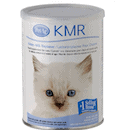
KMR Formula – you will need a formula bottle that fits the specific nipple you’re using with your kitten/litter. You will need to sanitize the bottle between feedings to ensure no nasty bacteria is grown in the bottle hat could lead to GI issues.
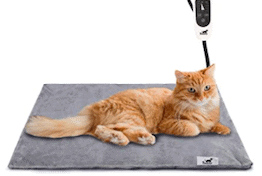
Heat Disk, Heating Pad, or Rice Socks – Young kittens can’t regulate their body temperature till they are around 4 weeks old. So fosters will need to add a heat source to their nest that should include blankets or towels.
Latest Blog Posts

Over 200 Kittens Dropped Off at the Shelters
https://www.youtube.com/watch?v=KwYpAFsDlBE It’s kitten season and we need your help! At Pet Alliance of Greater Orlando, we currently have 200+ kittens in foster care and we are in
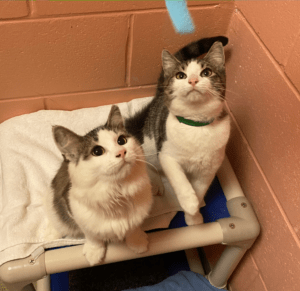
35 Cats Transferred from Puerto Rico to Central Florida
By Brunella Roncetti, Digital Marketing Intern Over the last four years, our neighbors to the south in Puerto Rico have experienced unimaginable devastation. From the
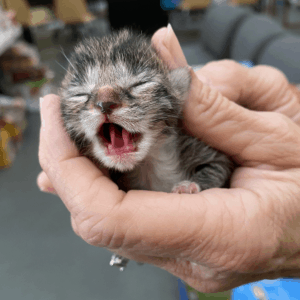
Coping with Kitten Season
We are about to embark on the start of kitten season. Thousands of homeless kittens will be born outside throughout Central Florida over the next

